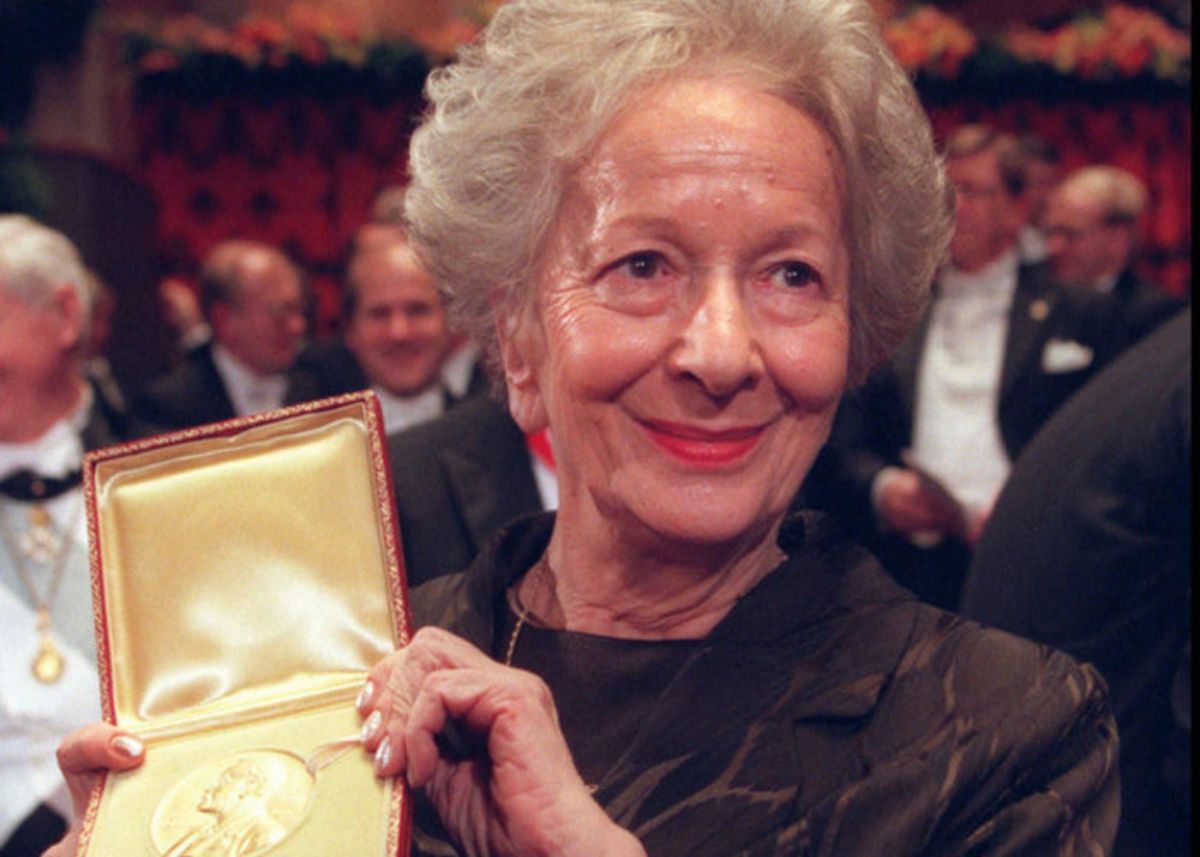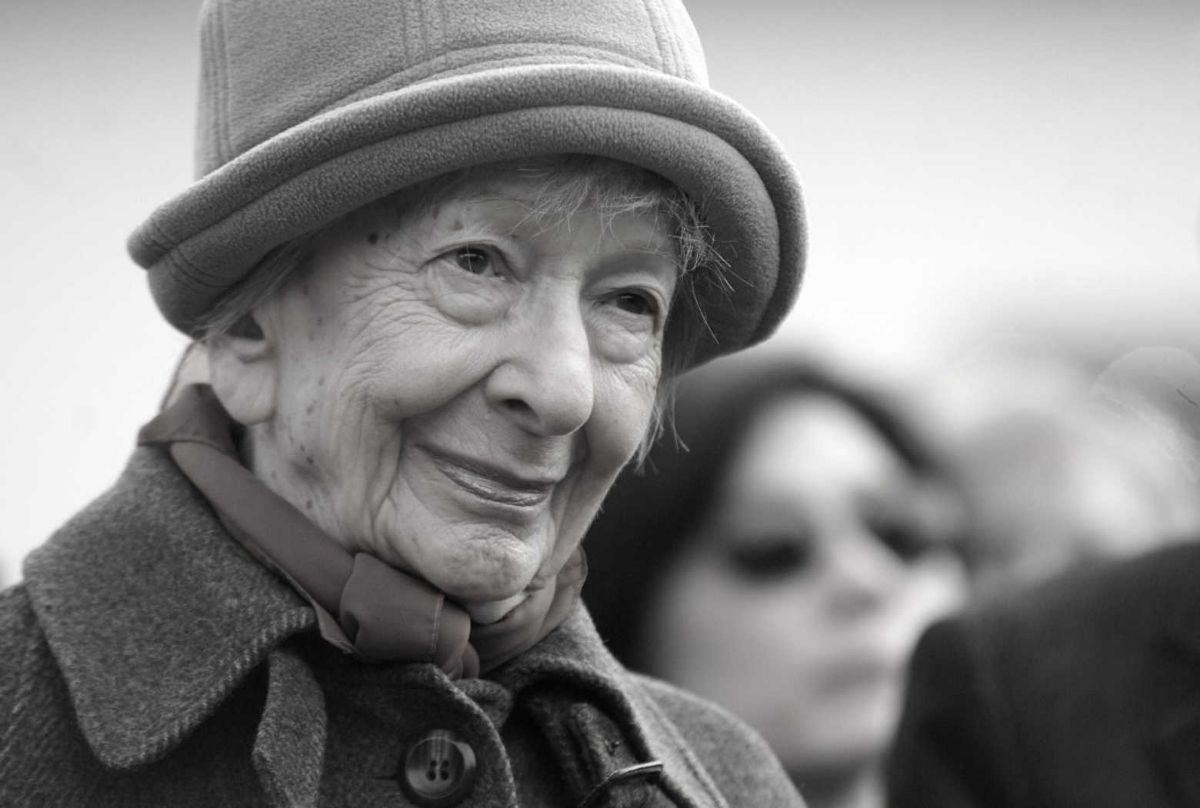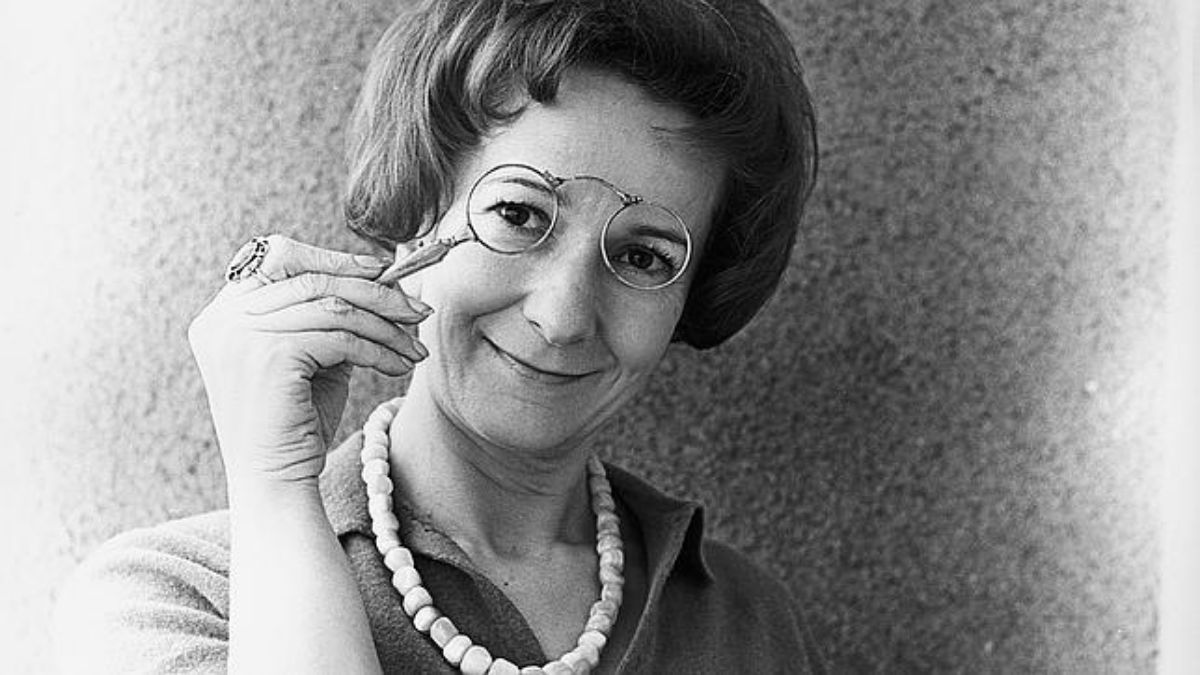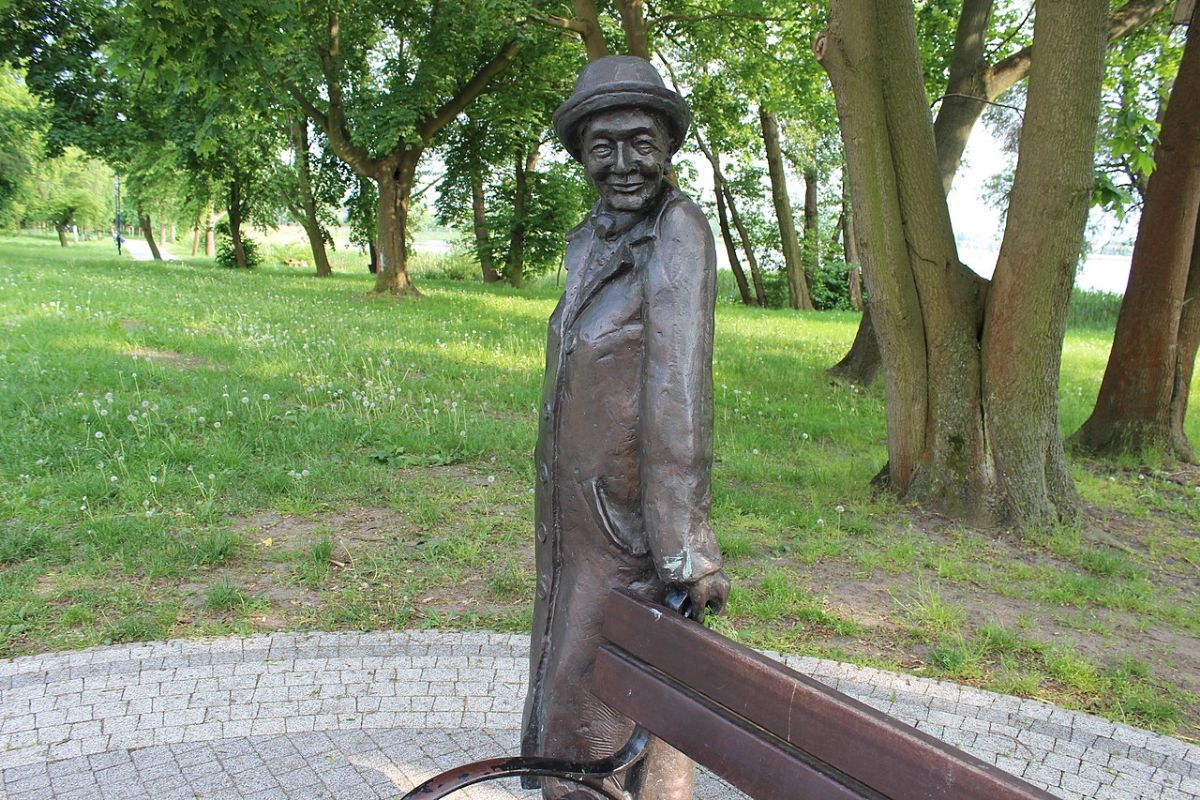
Wislawa Szymborska Fountain: the2banks
Wislawa Szymborska she is one of the least known poets in the world, despite the fact that, in 1996, she won the Nobel Prize for Literature. Unfortunately, we can no longer count on his presence, since he passed away in 2012, but his work continues to endure over time and surely you have come across it at some point.
But Who was Wislawa Szymborska? What did he write? Why are you so famous both in your country and abroad? Of all that, and much more, is what you are going to know today.
Who is Wislawa Szymborska

Source: zendalibros
Wislawa Szymborska is not really her name. The full name of this poet was Maria Wislawa Anna Szymborska. He was born in Prowent in 1923 (right now it is what we know as Kórnik, in Poland).
His father was butler to Count Wladyslaw Zamoyski, owner of the city of Kórnik, and when he died a year later, he meant that the family had to move to Torun, where Wislawa Szymborska grew up.
He was very precocious, so much so that, when he was five years old, when he was studying at school, he began to write poetry. It must also be said that everyone in his family was inveterate readers, and they used to read and argue about books. Besides, he had a "prize." And it is that all Wislawa Szymborska's poems passed through the hands of his father, and if he liked them, then he gave him a coin as a prize, with which he could buy whatever he wanted.
In 1931 they had to move again and, although he enrolled in the convent school in Krakow, he did not finish his studies there. At this time one of the traumas that marked her was, without a doubt, the death of her father. The family did not move again, but stayed in Krakow where, a few years later, with the Second World War, in 1940, they suffered the German occupation of Poland.
Because of this, Poles could not attend public schools. But that did not stop Wislawa Szymborska who decided to continue her studies and did so in an underground school, in Wawel Castle. Thus, in 1941 he finished his secondary school studies.
Two years later, she began working on the railways, thus avoiding being deported to Germany for forced labor. Also during this time he spent the rest of his time making illustrations for an English textbook and writing both short stories and poems.
The end of the Second World War helped Wislawa Szymborska enroll at the Jagiellonian University in Krakow, where she opted for Polish literature but eventually changed careers to sociology. Despite this, he was unable to finish his studies, but dropped out in 1948.
However, during that brief student period, he did publish some poems in newspapers and magazines.
Wislawa Szymborska in literature

Source: abc
The first poem Wislawa Szymborska published was in 1945, in a literary supplement to the daily Dziennik Polski. Its title, I seek the word (Szukam slowa). And that not only meant his debut, but also that they opened the doors to his poems in newspapers and local media.
In 1948, when she dropped out of college because she couldn't afford it, she began working as a secretary for an educational magazine, specifically for the newspaper that had given her her first chance, Dziennik Polski. And, at the same time that she was a secretary, she also served as an illustrator and a poet, since she continued to publish poetry.
In fact, in 1949, he already had his first collection of poems.
Shortly after, in '52, he released another collection of poems, Dlatego zyjemy (That is why we live), the vast majority of them full of his political ideology. And it is that at that time he became a member of the Polish Workers' Party, with a great socialist feeling that he turned not only in that collection of poems, but also in the next one, in 1954, Pytania zadawane sobie (Questions asked to oneself) .
Now, despite being a socialist, three years later he published a new collection of poems, Walanie do Yet (Call to the Yeti) in which he showed a clear disappointment and break with that communist ideology, and how she had changed in her thinking, dissatisfied with how that kind of politics worked.
In addition, he showed concern for humanity, specifically Stalinism, even dedicating a poem to Stalin where he compared him to the abominable snowman (the Yeti). Up to that point he renounced communism and socialism that he repudiated those two works that he published and never wanted to hear from them again.
What books did he write

You have to take into account that Wislawa Szymborska started writing from the age of 5. It is said that he left more than 350 written poems. In books, he wrote more than 15 of poetry and prose. But despite being so prolific, we could not say that it was world famous, in fact it was not like that. They knew her a little in her country, but not outside it. As she was better known, it was in her other works: literary criticism and translations.
So when in 1996 he was awarded the Nobel Prize for Literature, Wislawa Szymborska was a surprise, both for her and for all those who did not know her until that moment. Of course, it was not the only award he was awarded. Previously he already had others, such as the Prize of the Polish Ministry of Culture, awarded in 1963; the Goethe Prize, in 1991; or the Herder Prize and recognition as Honorary Doctor of Letters by the Adam Mickiewicz University of Poznan, in 1995.
1996 was a great year for her, not only because of the Nobel Prize, but also because she was awarded the PEN Club Prize of Poland.
Years later, in 2011, he received one of his latest awards, the Orla Bialego Order (Order of the White Eagle), the highest honor received in Poland.
In Spain you can find part of his translated work, some of the books are:
- Landscape with grain of sand.
- Two points.
- The large number.
- Happy love and other poems.
- Literary mail.
- Selected poems.
Finally, we leave you with one of Wislawa Szymborska's poems.
ANNOUNCEMENTS BY WORDS
ANYONE who knows the whereabouts
of compassion (fantasy of the soul),
"Let him know!" , Let him warn!
Let me sing it out loud
and dance like i lost my mind
jubilant under the frail willow
eternally on the verge of breaking down in tears.
I teach to shut up
in all languages
with a method of contemplating
of the starry sky,
the jaws of the sinantropus,
plankton,
the snowflake.
I RETURN love.
Attention! Bargain!
In the grass of yesteryear,
when, bathed in sun up to the neck,
you lie while the wind dances
(master of the dance of your hair).
Offers to "Dream".
Person wanted
to cry
to the elderly who in nursing homes
die. Serve yourselves
come forward without references
no written requests.
The papers will be destroyed
without acknowledgment of receipt.
FOR MY HUSBAND'S PROMISES
—That he deceived you with the colors
of the populous world, with its commotion,
with a couplet from the window, with a dog
behind the wall-
that you would never be alone
in gloom, silent and breathless.
I can't answer.
The Night, widow of the Day.
trad. Elzbieta Bortkiewicz
I was one of those who discovered it late and did not stop becoming one of my favorite poets. Many are the poems that dazzled me, but the first one that struck me was undoubtedly The Number Pi.